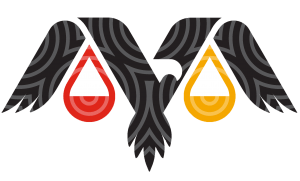MEDIA RELEASE 30 November 2020
VALS Supports a Health Response to Public Intoxication, with Limited
Police Involvement and Robust Safeguards
VALS acknowledges the tireless advocacy of Tanya Day’s family, and shares their concerns that police involvement in a health response to public drunkenness comes with a risk of discriminatory policing of Aboriginal people. If, under the health model being developed, police are to be first responders and are granted powers to detain intoxicated people, VALS recommends that accompanying legislation incorporates the Expert Reference Group’s (ERG) recommendations in relation to strict limits on police powers and robust safeguards.
VALS endorses the vast majority of the recommendations in the ERG’s report, Seeing the Clear Light of Day, while identifying opportunities to further strengthen the proposed safeguards and further limit the proposed police and Protective Services Officer (PSO) powers under the health-based response. VALS is of the firm view that PSOs should not have powers to detain people, including those who are intoxicated in public, nor should they be permitted to carry weapons. VALS also recommends that the legislative framework of the public health model prohibits treatment of detained people and detention conditions that amount to torture or cruel, inhuman or degrading treatment. It is essential that there is culturally appropriate, independent detention oversight, including by the detention oversight bodies that will be established under the Optional Protocol to the Convention against Torture. This safeguard must come into play from the moment someone is detained by police or another first responder.
VALS looks forward to the Government’s response to the ERG’s report, and to it conducting further consultations with Tanya Day’s family, the Aboriginal community and Aboriginal Community Controlled Organisations. Particularly, VALS notes that the Government’s recently released Budget provided for “$16 million to kickstart the new model”, and expects future Budgets to provide the necessary funding for Aboriginal Community Controlled Organisations to evaluate the cultural appropriateness of the implementation morrock casino and operation of the public drunkenness reforms, as was recommended by the ERG.
Quotes attributable to Nerita Waight, CEO of Victorian Aboriginal Legal Service:
“With next year’s 30th anniversary of the Royal Commission into Aboriginal Deaths in custody, implementation of its recommendation to decriminalise public drunkenness is long overdue. In response to Tanya Day’s tragic and preventable death, and the tireless advocacy of her family, the Government has taken positive steps towards implementing a health-based response to public drunkenness.”
Our people are disproportionately impacted by policing of public intoxication, and it is crucial to involve those whose loved ones have died in custody and the broader Aboriginal community in these important reforms. As we move forward, VALS strongly encourages the Government to minimise the involvement of police in this model, to ensure that there are robust safeguards in place, and to engage the Victorian Aboriginal community in developing the model and assessing its implementation.”
End
Contact: Andreea Lachsz; alachsz@vals.org.au

